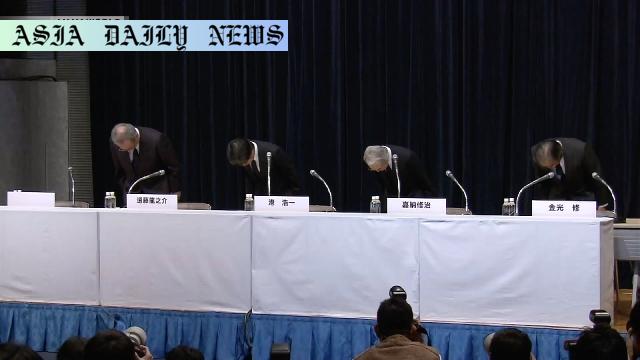Scandal: Fuji TV executives resign due to mishandling of a high-profile case involving Nakai Masahiro, impacting public trust and advertisers.
Fuji TV executives, including President Minato Koichi, resign amidst growing public backlash over a mishandled controversy.
The scandal centers on Nakai Masahiro’s involvement in a troubling incident and a lack of accountability from the network.
Companies pulled ads, criticism mounted, and Fuji TV’s limited transparency deepened the crisis.

Resignations Shake Fuji TV Amid Scandal
The resignation of Fuji Television’s top executives, including President Minato Koichi and Chairman Kanoh Shuji, has sent shockwaves throughout Japan’s media industry. The controversy stems from mishandled allegations surrounding Nakai Masahiro, a former member of the boy band SMAP. Reports suggest that Nakai was involved in ‘trouble’ with a woman in 2023, which led to a settlement. Alarmingly, a Fuji TV employee is said to have played a role in the incident.
Lack of Accountability and Public Backlash
Leadership at Fuji TV failed to act decisively when details of the incident emerged. Despite their awareness, executives permitted Nakai to continue appearing on programs for over a year and a half after the case. Minato Koichi admitted during a press conference that there was insufficient examination into the incident and its root causes, citing further concerns around inappropriate gatherings involving celebrities.
Impact on the Victim and Broader Implications
The victim reportedly endured a prolonged recovery period and was unable to return to her professional aspirations. Minato expressed regret over the company’s negligence and vowed to personally apologize, though the damage to public perception was already significant. Advertisers, disheartened by the broadcaster’s conduct, have begun withdrawing their support. Fuji TV’s reputation has suffered, and there are calls for meaningful reforms.
Fuji TV and Transparency Failings
Intense criticism also stemmed from Fuji TV’s handling of the scandal-related communications. Earlier this month, the company limited the press conference to selected outlets and prohibited TV cameras, raising accusations of lacking transparency. In hindsight, Minato acknowledged these shortcomings, but as scrutiny intensified, the network’s credibility faced unparalleled challenges.
Corporate Responsibility and Future Reforms
Corporate governance crises like Fuji TV’s underline the urgency for firms to prioritize accountability, transparency, and responsiveness to public sentiments. Going forward, the company must establish a more robust framework for ethical conduct. Whether Fuji TV can recover from this catastrophe depends not only on new leadership but on a recommitment to values that restore audience and advertiser trust.
Broader Industry Implications
The Fuji TV scandal could have a far-reaching impact on Japan’s media landscape, urging increased scrutiny across the broadcasting industry. Stakeholders will need to reflect on how corporate culture, celebrity relationships, and industry dynamics are managed to prevent future missteps. This moment could mark a turning point for Japan’s television industry if lessons are earnestly absorbed and acted upon.



Commentary
A Lesson on Accountability
The resignation of Fuji TV’s top executives offers a stark reminder of how accountability must be a cornerstone of leadership. Allowing a high-profile talent to remain on air while unresolved allegations loomed not only damaged the company’s reputation but compromised public trust in the institution as a whole. Leaders must remember their responsibility to safeguard ethical standards and uphold their audience’s faith.
The Role of Transparency in Restoring Trust
Transparency is critical, especially for entities as public-facing as TV networks. Fuji TV’s initial decision to restrict media access during a press conference was counterproductive. In doing so, they signaled opacity instead of openness. Public-facing organizations must recognize that clear and honest communication is critical for navigating crises. Fuji TV’s actions did little to assuage growing public concerns.
Corporate Responsibility Is Non-Negotiable
This scandal serves as a wake-up call for not only Fuji TV but for the broader industry. Corporate governance principles must go beyond compliance to ensure ethical decision-making at every level. Companies need to recognize how deeply their actions, or lack thereof, impact stakeholders, from victims of incidents to viewers and advertisers. Only by embracing meaningful reform can Fuji TV hope to regain its standing.